When stories appear in the media about stray (street dogs) they are generally about
mass extermination campaigns launched by the local authorities to reduce the stray
dog population. Often the dogs are portrayed in a negative way in terms of human
and animal conflict, despite the fact that many stray dogs are in fact abandoned
pets or the descendants of abandoned pet dogs and therefore domesticated and still
in need of human interaction and care.
© Four Paws/Vier Pfoten

In an attempt to change the misconception of stray dogs, international animal welfare
organisation FOUR PAWS came up with an idea that at the time was considered absurd
by many – to train former stray dogs as pet therapy dogs for children with different
disabilities and thus help not only people, but also strays by changing public attitude.
The location of the new endeavour Bucharest, Romania, was even a bigger challenge.
Animal assisted therapy was practically non-existent in Romania at the time and
its introduction was met with skepticism. In addition, stray dogs are viewed negatively
by many people in Romania, due to how they are portrayed in the media and there
was concern that they would not be suitable for pet therapy work.
Bucharest, the capital of former communist country was teeming with stray dogs –
a heritage from the time of Ceaușescu, when the regime started to demolish whole
neighborhoods of houses to clear space for the big palace of the leader. The inhabitants
were forcefully relocated to apartment blocks in the outskirts of the city, where
there was no space for their pets, so many were simply left to roam the streets
and reproduce freely. Decades later, many local authorities not willingly to invest
in sustainable and humane solutions such as capture neuter and release to manage
the stray dog population continue their mass killing of the dogs, often portraying
stray dogs negatively in the media to help justify their actions.
© Four Paws/Vier Pfoten
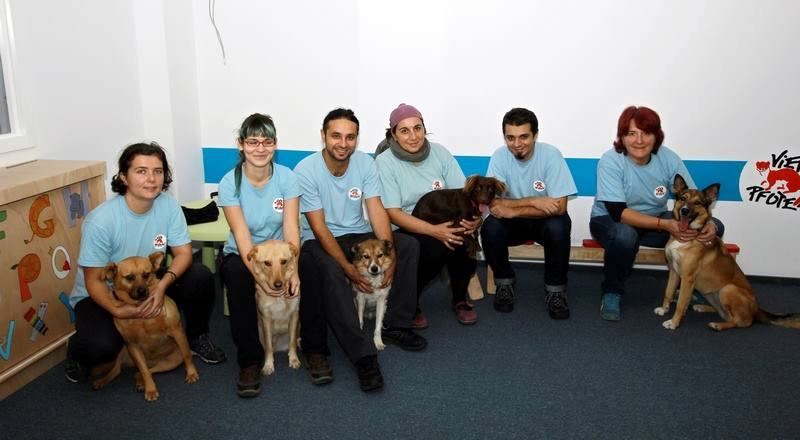
Despite the challenging circumstances, FOUR PAWS did not give up and just several
months later under the direction of Anca Tomescu, Head of Stray Animal Care, the
charity had in place a team of trained handlers led by a psychotherapist, as well
as several certified therapy dogs, who started working with children in state and
private institutions in Bucharest. Today, almost 12 years after the launch of the
Dogs for People project, more than 150 children have benefited from the efforts
of the FOUR PAWS team and thanks to their amazing results animal assisted therapy
is gaining momentum in Romania and other Eastern European countries.
Psychotherapist Victor Chitic has been working with the FOUR PAWS team in Romania
since the very start of the Dogs for People project. Victor selects the children
to be included in the programme and coordinates the animal assisted therapy sessions.
“Animal Assisted Therapy is a form of complementary therapy which means that it
enhances a conventional therapeutic process that the child is engaged in,” says
Victor who goes on to explain more about the benefits of working with therapy dogs.
“Dogs offer unconditional acceptance, they don’t see a disability and therefore
don’t judge. Dogs offer sensory stimulation, help develop relationship skills, activate
certain behaviours and, most importantly, the dog can become a “special friend”
for the child.”
© Four Paws/Vier Pfoten

The FOUR PAWS team in Bucharest works with two main categories of children - those
with developmental needs (genetic, like Down syndrome, perinatal syndromes, and
those with special needs acquired later in life, like cerebrovascular accidents)
and children with autism spectrum disorders. The objectives of the therapy sessions
are different for each child and are set by their current psychologist, with whom
Victor and his FOUR PAWS colleagues work in close collaboration. The animal assisted
therapy Dogs for People project helps to facilitate progress in different areas
of a child’s behaviour – physical, mental, educational and motivational. With the
help of the former stray dogs, children improve their motor skills or the ability
to use a wheel-chair, enhance verbal communication, attention span and self-esteem,
reduce anxiety levels, expand their vocabulary, as well as short-term memory and
understand basic concepts like numbers, size, shape and colour through the different
exercises they participate in with the dogs. Their desire to interact with other
children or grown-ups is also increased, while their planning and organisational
skills are additional enhanced. All these results are achievable in much shorter
time than if only conventional psychotherapy is applied, and sometimes are not possible
at all without the facilitation that therapy dogs provide.
© Four Paws/Vier Pfoten
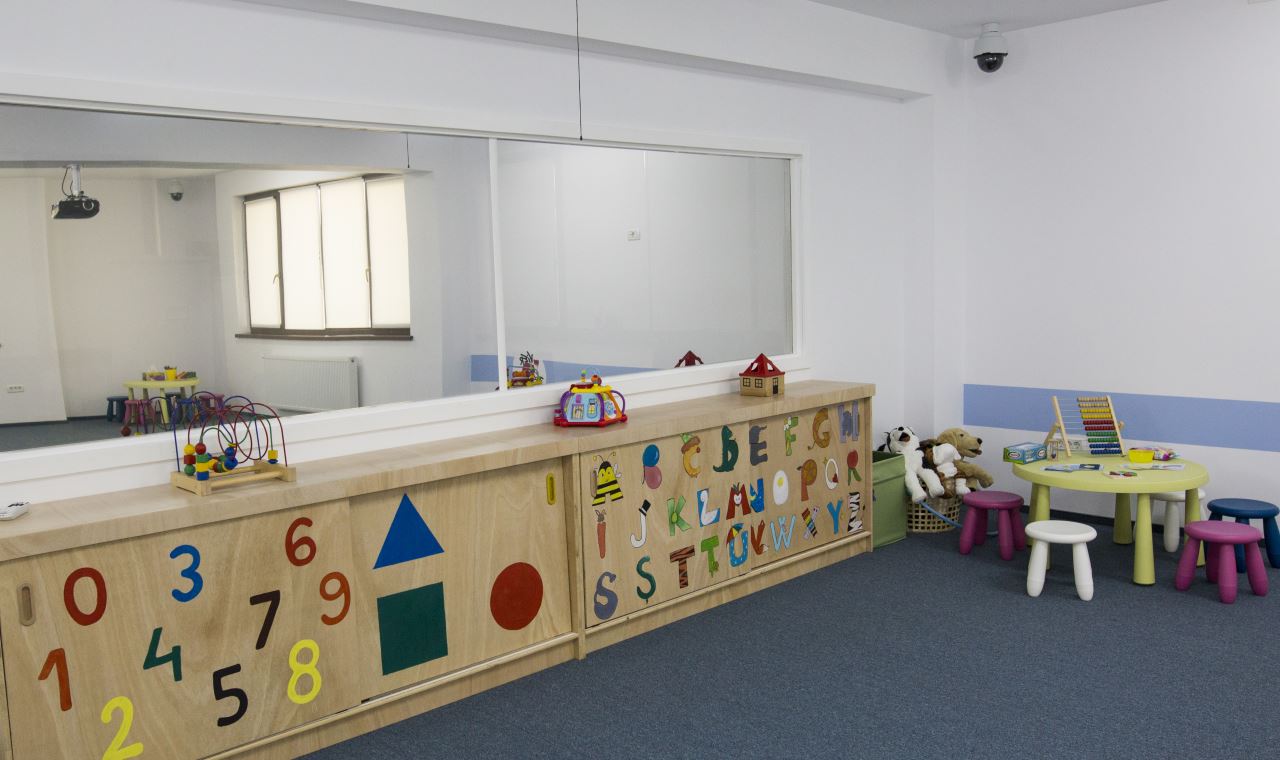
The dog trainers are closely involved in the selection of the therapy dogs for the
project – a process that is of crucial importance for the success of the whole project.
Each dog has to go through a strict selection and training process before applying
for certification as a therapy dog. There is the initial selection of strays from
shelters, in which the reaction of the dog to various stimuli is tested. Those who
pass the test undergo secondary selection, which involves observing the dog’s behaviour
in many different situations. The FOUR PAWS team on site has already acquired a
lot of experience and knows whether or not a dog could work with children after
spending several days with the animal, but nevertheless it takes a minimum of 6
months to complete this testing phase. Those dogs which pass all the stringent tests,
can be safely introduced into the therapy process and assigned to a handler. The
training of both the dog and the handler is ongoing and the team is continually
improving its standards of practice. Currently the Dogs for People project have
two dog-handler pairs – Tuca with her handler Mihaela Rafailescu and Mulan with
Ema Rafailescu. All therapy dogs live with their handlers and are adopted by them.
Sadly, in the beginning of the year the team lost 12-year-old Tibi – the first therapy
dog of FOUR PAWS in Romania, who died of a fast-growing tumour in the hands of her
handler George Nedelcu. Tibi was an incredible ambassador for FOUR PAWS animal assisted
therapy work and is sadly missed.
© Four Paws/Vier Pfoten
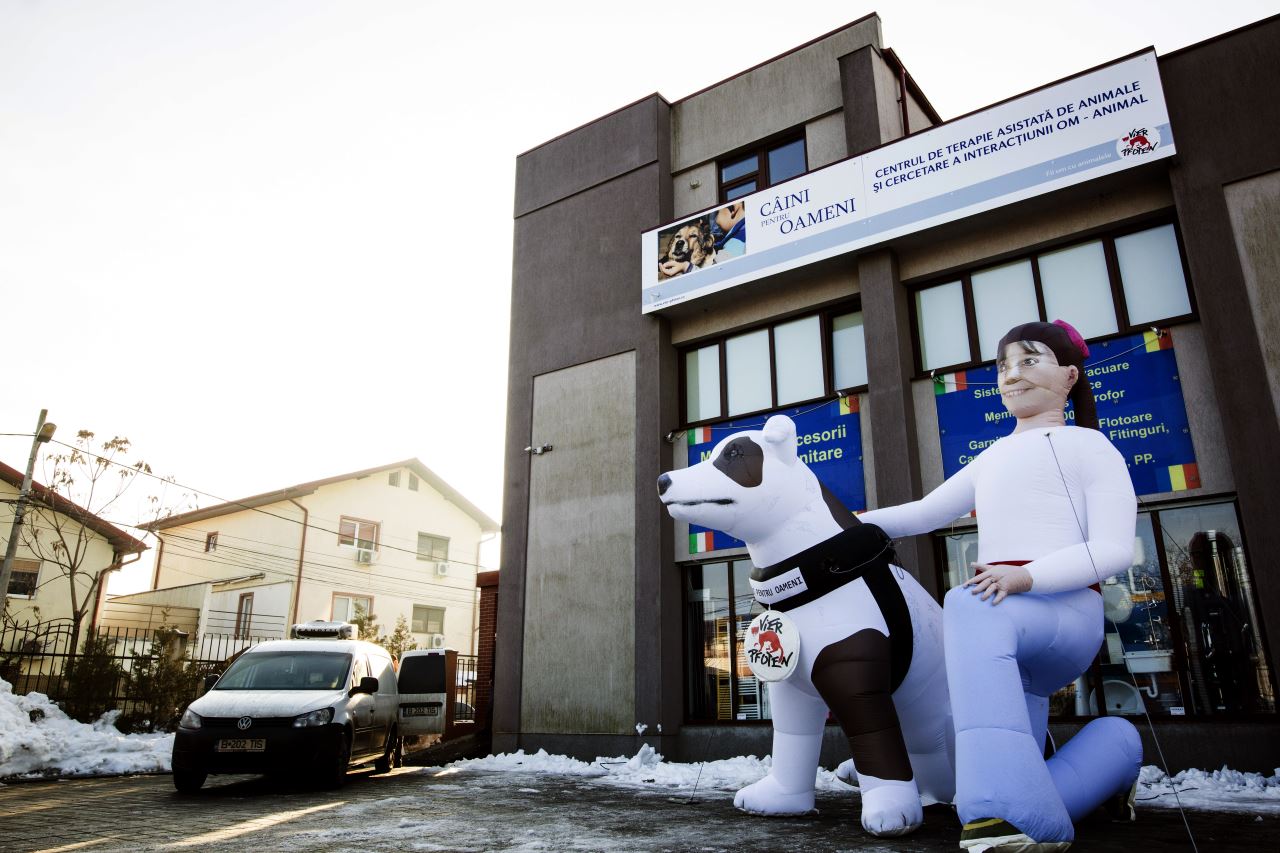
“We are very fortunate to have a great team that has been with us since the beginning
of the project,” says Victor. “The emotional cost of their work is very high. Every
child that comes into therapy is a personal case, a personal relationship. Every
dog which is part of the team receives extra care and is treated as a member of
our FOUR PAWS family.”
Until the end of 2015 the Dogs for People team conducted the therapy sessions at
the premises of various institutions for children with special needs, where they
would be given a room to work in by the local health authority. This was a challenge,
as the assigned rooms were often too small and seldom had any equipment to perform
and monitor the animal assisted therapy sessions.
© Four Paws/Vier Pfoten
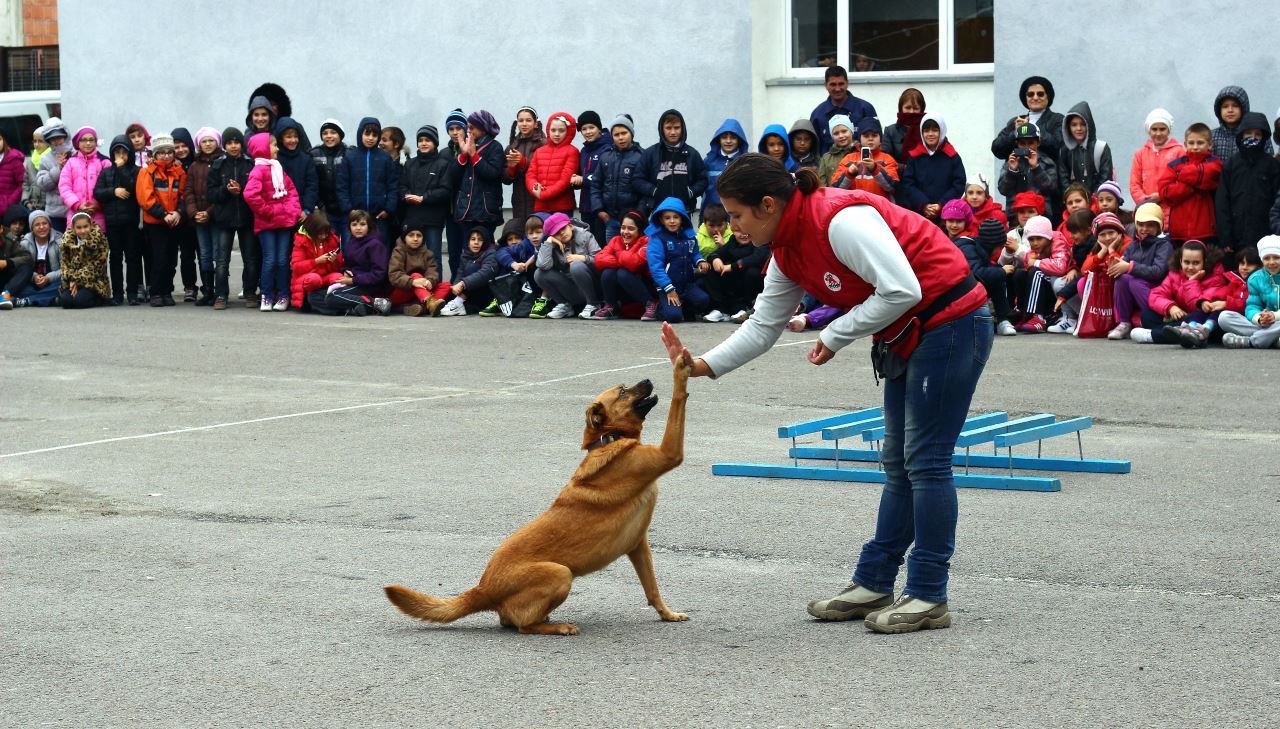
November 3rd 2015 marked an important milestone in the development not
only of Dogs for People project, but also of Animal Assisted Therapy – in Romania
as well as in Europe. On that day FOUR PAWS officially opened “Dogs for People”
Animal Assisted Therapy and Human-Animal Interaction Research Center in Bucharest
– fully financed by the animal welfare charity and offering free-of-charge treatment
for children with special needs. For the team this facility is a dream come true,
after so many years they now have a place of their own and, in addition to the animal
assisted, can also do research in the field of human-animal interaction and organise
education seminars.
The research part is supported by a state-of-the art behavioural observation laboratory
(the most advanced in Romania, as well as probably in the whole of Eastern Europe),
which includes a video surveillance system powered by 3 HD ceiling mounted cameras
that record every therapy session from 3 different angles and a powerful sequential
analysis software that codes and records certain behaviours. The software has an
embedded statistical package that is used to generate quantitative statistical data
about the interaction with animals to help in our learning of animal assisted therapy
and continuous improvement in our techniques. Just a few weeks after the facility
was opened, it started collaborating with two of the most prestigious universities
in Romania: Babes-Bolyai University in Cluj-Napoca and The University of Bucharest.
One of the first internationally acknowledged experts in AAT to visit the Dogs for
People therapy centre was Dr Philip Tedeschi, Executive Director of the Institute
for Human-Animal Connection at the University of Denver, who took part in a workshop
organised by FOUR PAWS.
© Four Paws/Vier Pfoten
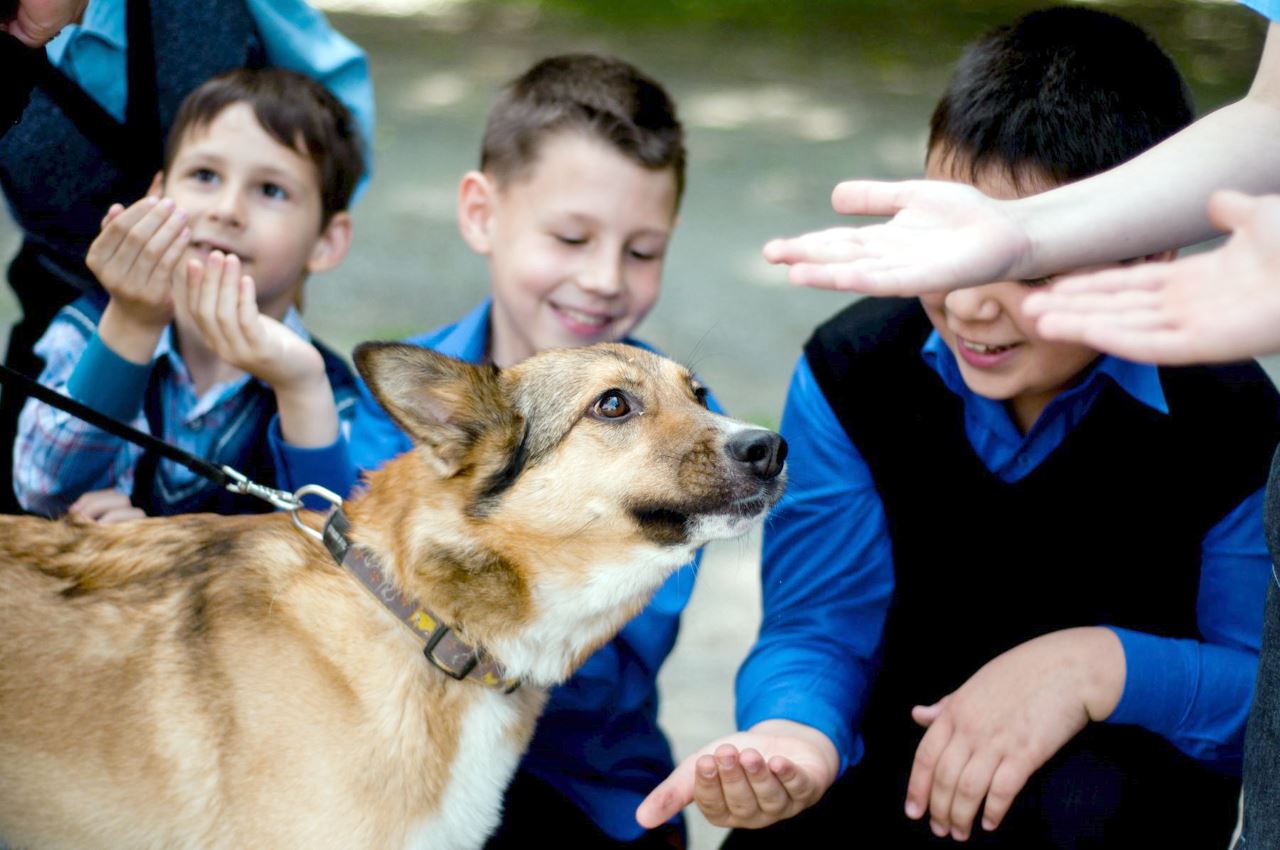
The new centre means that FOUR PAWS will be able to help even more children in need
not only by providing direct help on the spot, but also by educating and conducting
research. Currently the team of Dogs for People works with 32 children and the plans
are to expand this to 50 children by the end of 2016.
Anca Tomescu, Head of Stray Animal Care explains that “being able to help children
and at the same time changing people’s perceptions about stray dogs is incredible.
The most rewarding moments for us are when we see significant improvement in the
children through the interaction with former stray dogs and the difference the dogs
make to the children’s lives.”
FOUR PAWS are planning to expand their Animal Assisted Therapy work with stray dogs
to other countries where they operate in the future.
Julie Sanders
International Director of Companion Animals, FOUR PAWS